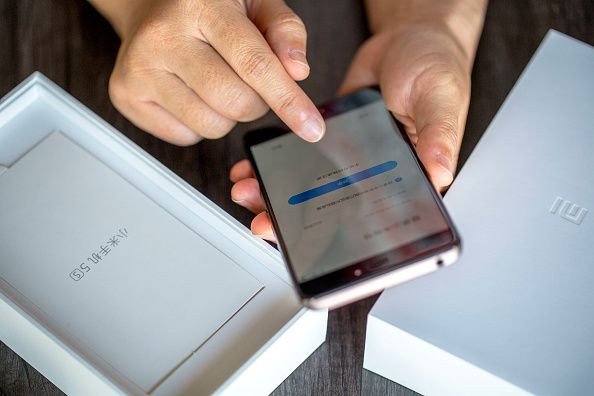What Is Phubbing? How The New Trend May Be Ruining Your Relationship
According to a new study from researchers at the Hankamer School of Business of Baylor University, millions of people are suffering from a relatively new condition called ‘phubbing,’ which could be gradually destroying romantic relationships everywhere. The term originated from a combination of the words "phone" and "snubbing," and it's described as the act of paying more attention to your smartphone than the person near you.
The study also concluded that the habit affects depression. A survey of 450 people by Baylor University found that more than 46 percent confessed to being a victim of 'phubbing' by their partner, while 22 percent of relationships reported that phubbing became the primary cause of most of their arguments.
READ: What Jobs Are Millennials Working That They Wouldn't Have In The Past?
It’s an occurrence that stems from the number of times we touch and interact with our phones — an addiction that many smartphone users suffer from.
In fact, a cellphone user touches his or her device an average of 2,617 times daily, according to a study conducted by Dscout. Motions such as swiping, tapping and typing on the phone's screen constitute as a "touch." The Dscout research also found that regular users spent about 145 minutes using their cellular devices, engaging in 76 phone interactions a day.
Unlike other forms of behavioral addiction like gambling, phone addiction largely affected young, extroverted women more than any other group in social settings.
A study on the effects of smartphone use and how it influences romantic relationships found that ‘phubbing’ mainly cuts relationship satisfaction — particularly for those who had pre-existing insecurities about their relationships.
READ: Credit Cards Trends For Millennials Compared To Past Generations [VIDEO]
As Whimn reported, this data isn’t shocking according to one of Australia’s relationship specialists at The Hart Center. “This is uncharted territory for us as a society,” Julie Hart told Whimn. “For younger people, technology of this kind has always been a part of their lives and they're so dependent on it.”
“There are three important connection factors that will give us a sense of satisfaction in our relationships. The first one is accessibility, that you’re both open and listening to one another,” she added. “The second is responsiveness, as in you both empathize and try to understand how the other feels, as in 'get’ each other, and the third is engagement, so you're both making the time to be fully attentive to each other."
Phubbing can damage the value of your relationship by conveying a hidden message to your spouse that you don’t find them to be as important to you as your phone or the people you’re interacting with on the device.
“It suggests that there is never a time that you will put him or her ahead of everything else,” Hart said.
There’s still hope, and people can protect their relationships by setting some firm restrictions regarding smartphone usage when spending time together.
“Sit down together and set out some rules about phone-free time, where you basically put your phone away somewhere where you can't hear it, for a full hour every night while you and your partner spend some quality time together,” Hart said.

© Copyright IBTimes 2024. All rights reserved.





















